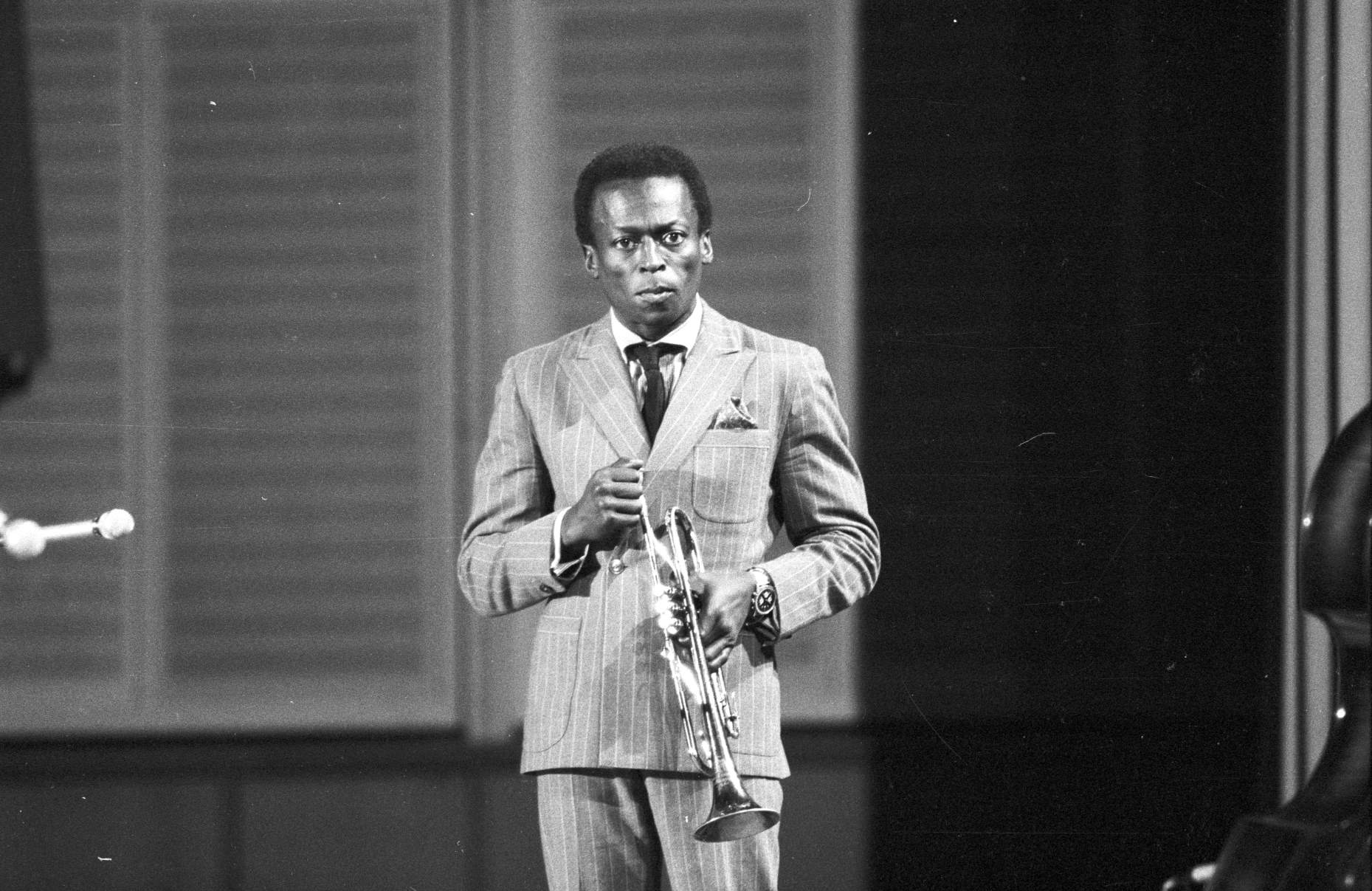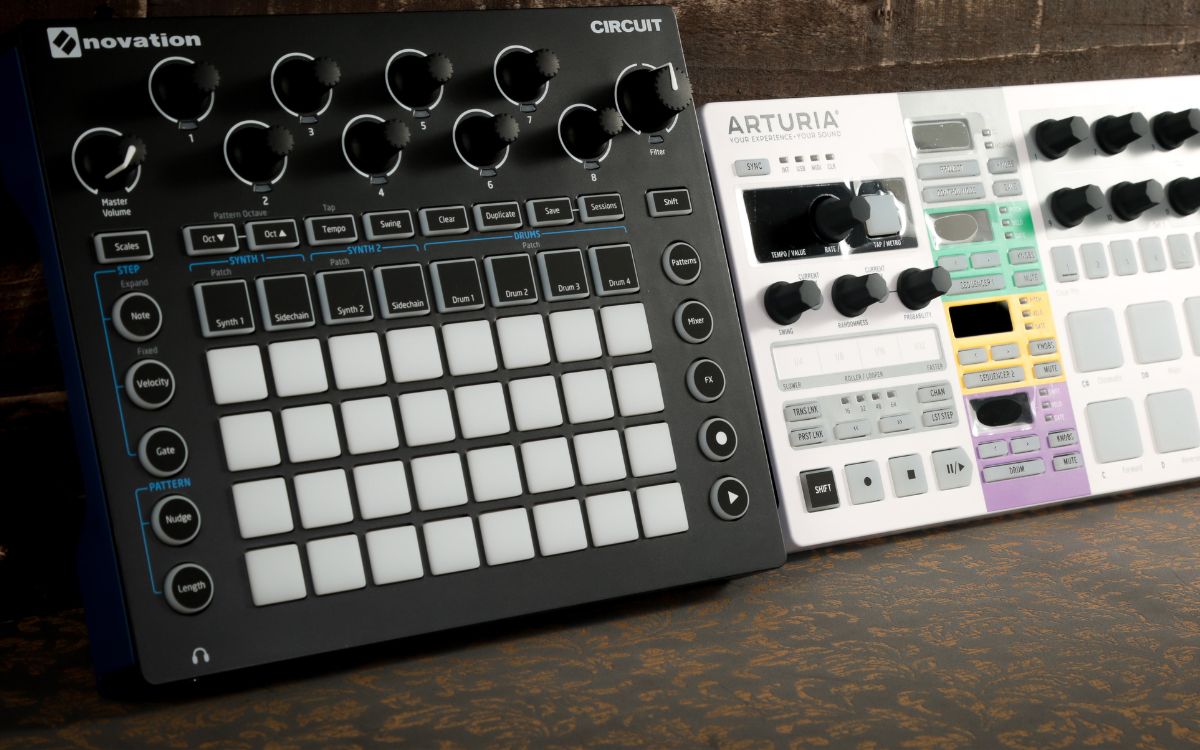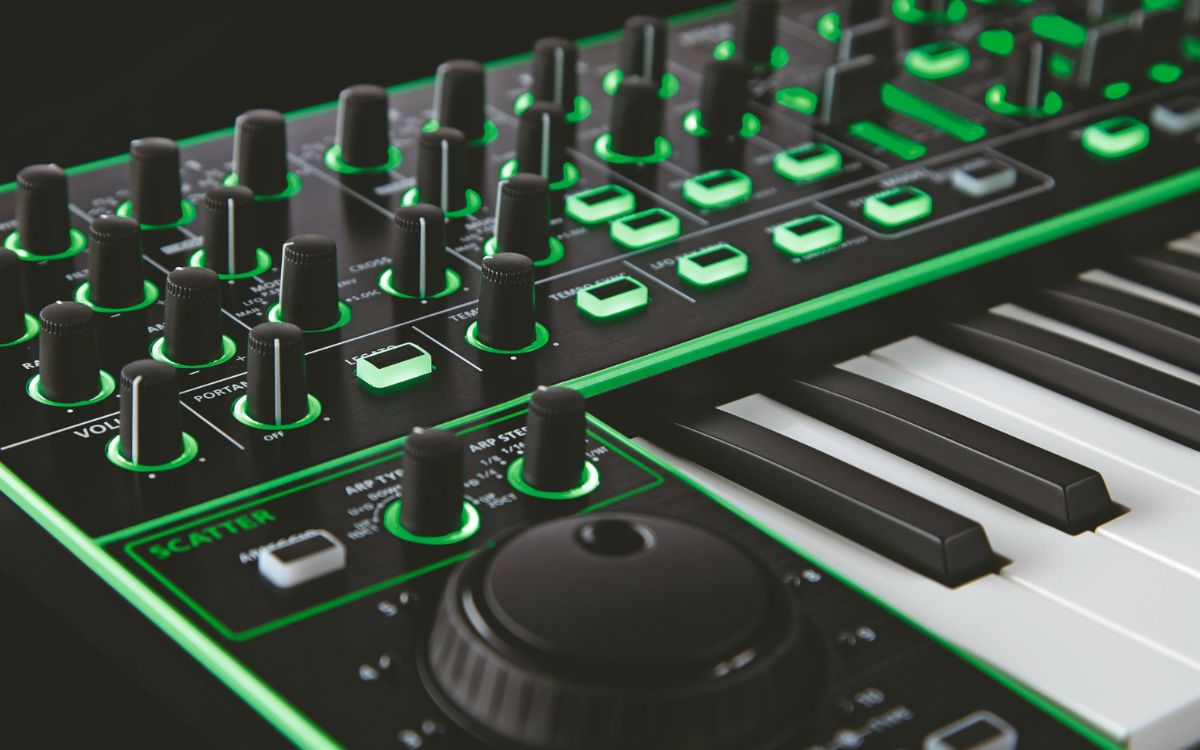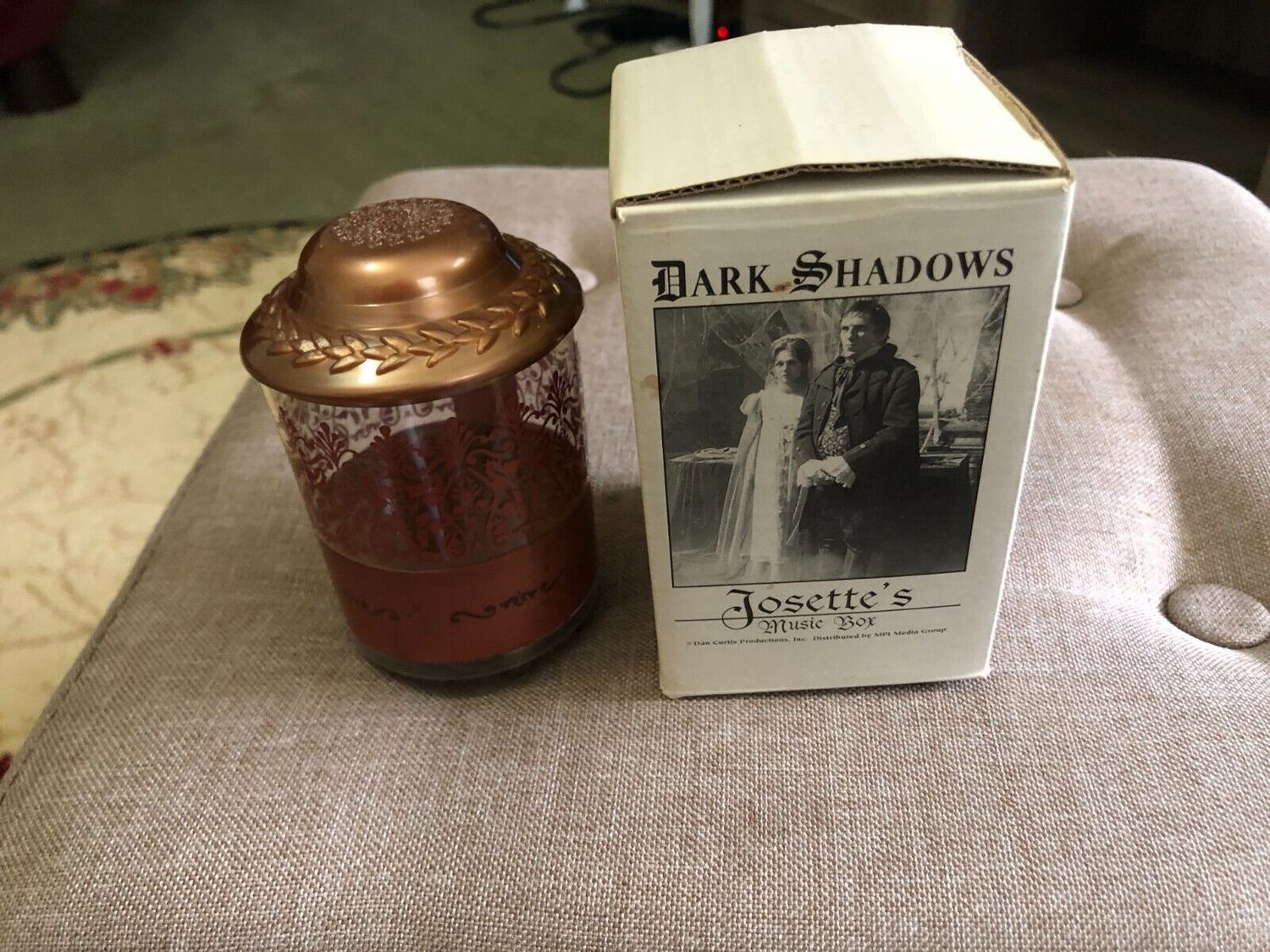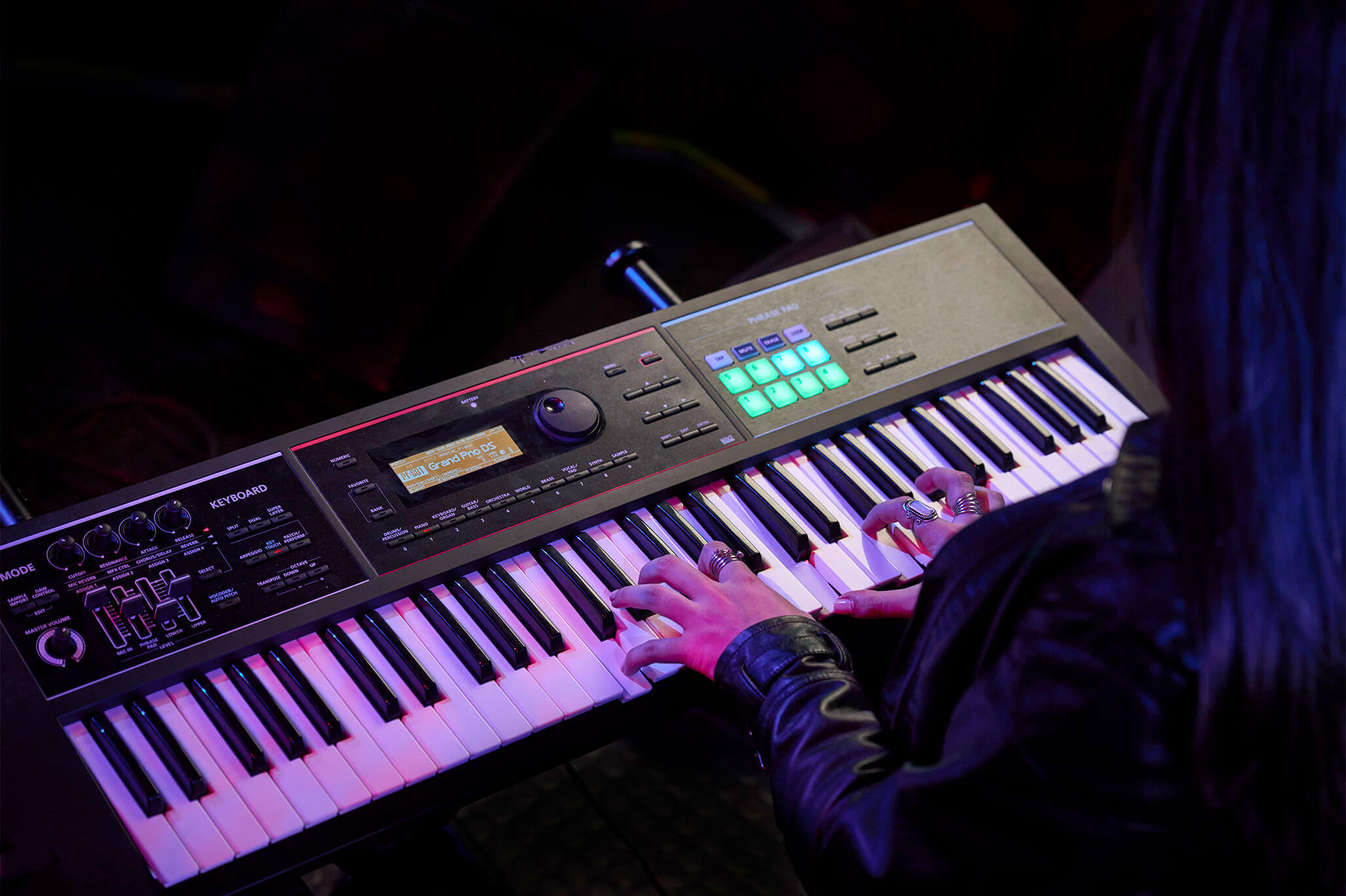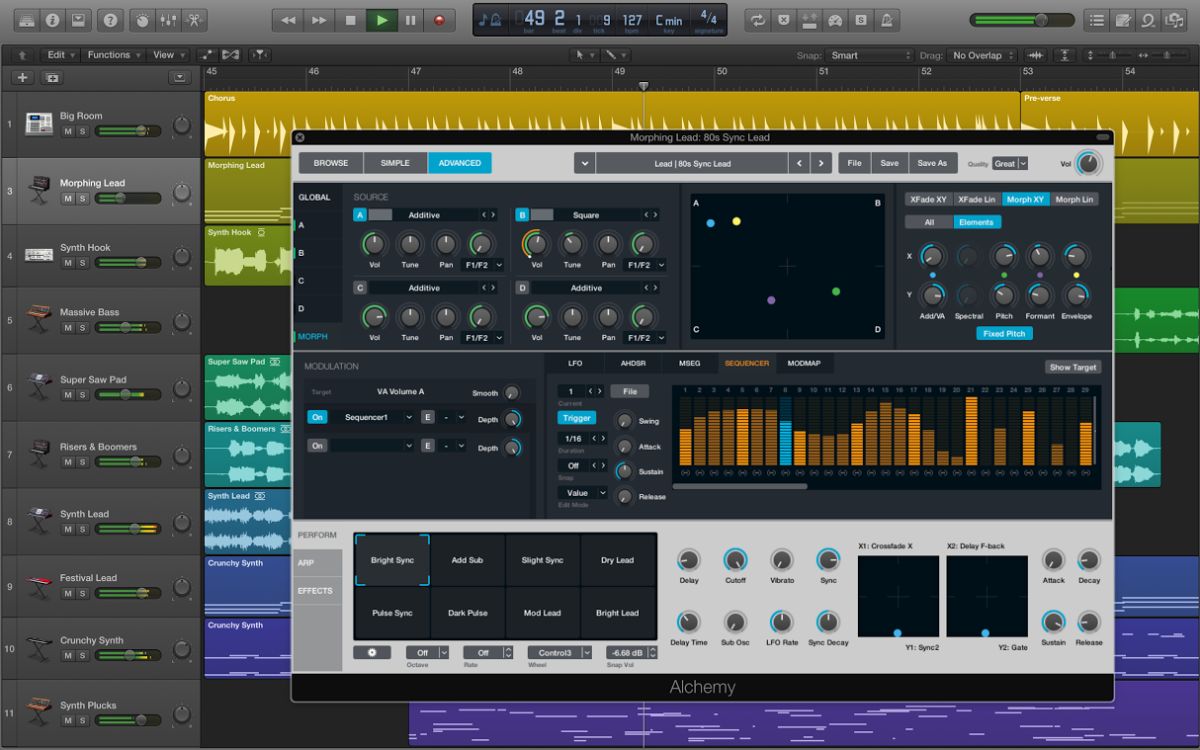Home>Instruments>Synthesizer>What Kind Of Synthesizer Players Do Professional Musicians Use
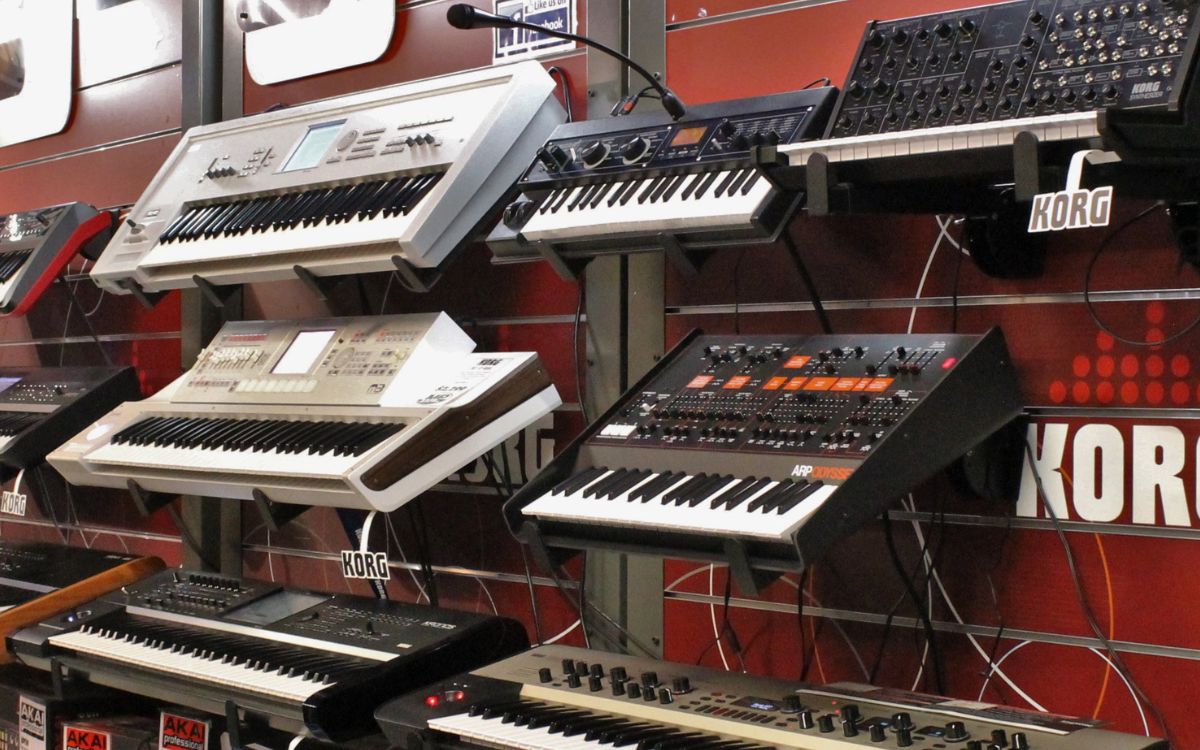

Synthesizer
What Kind Of Synthesizer Players Do Professional Musicians Use
Modified: January 22, 2024
Discover the go-to synthesizer players use in the industry. Find out what kind of synthesizers professional musicians prefer and why.
(Many of the links in this article redirect to a specific reviewed product. Your purchase of these products through affiliate links helps to generate commission for AudioLover.com, at no extra cost. Learn more)
Table of Contents
Introduction
Synthesizers are powerful musical instruments that have become an integral part of modern music production. They allow musicians to create a vast array of sounds, ranging from lush pads to piercing leads and everything in between. Professional musicians recognize the value of a high-quality synthesizer in their music-making process. They understand that the right synthesizer can enhance their creativity, boost their productivity, and elevate their performances to new heights.
In this article, we will delve into the different types of synthesizer players that professional musicians prefer to use. Whether they are keyboardists, sound designers, composers, live performers, producers, or collaborative musicians, each category has unique preferences and requirements when it comes to selecting a synthesizer.
By exploring the various roles these musicians play, we can gain valuable insights into the diverse world of synthesizers and how they are utilized by professionals in different contexts. Let’s dive in and discover what kind of synthesizer players professional musicians prefer!
Keyboardists
Keyboardists are essential members of any band or musical ensemble. They are responsible for playing melodic lines, harmonies, and accompaniments on the synthesizer keyboard. Professional keyboardists often require a synthesizer that offers a wide range of sounds, expressiveness, and intuitive control.
One synthesizer that is highly popular among keyboardists is the Nord Stage series. These keyboards are renowned for their authentic piano sounds and versatile performance capabilities. With their weighted keys and intricate sound engine, Nord Stage synthesizers provide keyboardists with a lifelike playing experience and a vast array of sounds to choose from.
Another favorite among keyboardists is the Yamaha Montage series. These synthesizers feature advanced sound processing and expressive controllers, allowing keyboardists to create dynamic performances. With a wide selection of high-quality presets, the Montage series offers keyboardists the ability to quickly access and manipulate a diverse range of sounds.
For those keyboardists who prefer a more vintage vibe, the Korg Kronos is a popular choice. This synthesizer provides a comprehensive collection of classic keyboard sounds, including realistic emulations of iconic instruments like the Rhodes electric piano and the Hammond organ. With its intuitive interface and powerful sound engine, the Kronos enables keyboardists to capture the essence of retro and contemporary sounds alike.
Ultimately, the choice of synthesizer for a keyboardist depends on their specific musical style and personal preferences. Some may prioritize the authenticity of acoustic instrument sounds, while others may focus on the versatility and flexibility of synthesizer-generated sounds. Regardless of the choice, professional keyboardists seek synthesizers that can deliver top-notch performance and inspire their creativity on stage and in the studio.
Sound Designers
Sound designers play a crucial role in creating unique and captivating soundscapes for various media platforms, such as films, video games, and commercials. They rely on synthesizers to craft custom sounds that fit the specific requirements of a project.
One popular choice among sound designers is the Dave Smith Instruments Prophet series. These synthesizers are known for their rich analog sound and powerful modulation capabilities. With a wide variety of oscillators, filters, and envelopes, sound designers can sculpt intricate sounds that bring their creative visions to life.
Another favored option for sound designers is the Native Instruments Komplete series. This software-based synthesizer collection offers an extensive range of virtual instruments and effects that cover a broad spectrum of sounds. From lush pads to gritty basslines and experimental textures, sound designers can explore endless sonic possibilities with the Komplete series.
When it comes to modular synthesis, the Make Noise Shared System is highly regarded by sound designers. This comprehensive system consists of various modules that can be interconnected and manipulated to create complex and evolving sounds. With its limitless potential for experimentation and sonic exploration, the Make Noise Shared System empowers sound designers to push the boundaries of conventional sound design.
Sound designers also appreciate synthesizers with robust sampling capabilities, such as the Elektron Digitakt. This compact and versatile sampler allows sound designers to capture and manipulate real-world sounds, as well as create unique sonic textures from scratch. The Digitakt’s intuitive interface and powerful sequencing capabilities make it a valuable tool for sound design projects.
Ultimately, sound designers seek synthesizers that offer flexibility, expressiveness, and a diverse sonic palette. The ability to create evocative and immersive sounds is crucial for them to enhance the overall mood and atmosphere of their projects. Whether it’s analog or digital, hardware or software, sound designers rely on synthesizers to unleash their creativity and deliver exceptional auditory experiences.
Composers
Composers are the masterminds behind the creation of music, whether it’s for orchestral pieces, film scores, or contemporary compositions. They rely on synthesizers to bring their musical ideas to life and explore new sonic territories.
One synthesizer that has gained immense popularity among composers is the Roland Fantom series. These workstations offer a wide range of high-quality sounds and advanced features that cater to the diverse needs of composers. With their intuitive interfaces and comprehensive sound libraries, the Fantom series allows composers to quickly sketch out ideas and create complex compositions with ease.
Another favored option for composers is the Korg Kronos workstation. Its extensive selection of sounds and powerful sequencing capabilities make it a go-to choice for composing intricate and dynamic pieces. The Kronos also offers a variety of performance options, including comprehensive MIDI control and an intuitive interface, enabling composers to express their musical ideas effectively.
For composers who prefer a more experimental and cutting-edge approach, the Ableton Push controller paired with Ableton Live software offers unparalleled flexibility and creative possibilities. The combination allows composers to integrate synthesizers, virtual instruments, and live recordings seamlessly. With its unique workflow and real-time performance capabilities, composers can explore new realms of composition while maintaining complete control over their sonic creations.
Additionally, composers often seek synthesizers that provide advanced orchestral sounds. The Vienna Symphonic Library, for example, offers a comprehensive set of sample libraries specifically designed for orchestral composition. With its realistic instrument emulations and expressive articulations, composers can achieve authentic orchestral arrangements that enhance the emotional impact of their music.
Ultimately, composers require synthesizers that offer versatility, exceptional sound quality, and intuitive control. The ability to translate their musical ideas into full-fledged compositions is paramount. Whether it’s for traditional orchestral compositions or pioneering avant-garde works, synthesizers play a fundamental role in the creative process of composers, helping them shape and refine their musical visions.
Live Performers
Live performers, such as bands and solo artists, rely on synthesizers to bring their music to life on stage. They require instruments that are not only reliable and durable but also versatile and packed with performance features.
One popular choice among live performers is the Moog Subsequent 37. Known for its rich analog sound and expressive control, the Subsequent 37 offers musicians a wide range of classic synth sounds that cut through the mix. Its sturdy build and intuitive interface make it a go-to choice for live performances, allowing artists to easily tweak parameters and create dynamic and engaging shows.
Another favored option for live performers is the Novation Peak. This hybrid synth combines analog and digital sound engines, delivering a vast sonic palette for live performances. With its intuitive interface and extensive modulation capabilities, the Peak offers musicians the flexibility to create unique sounds and perform them in real-time.
For performers looking for a portable and versatile option, the Yamaha Reface series is an excellent choice. These compact synthesizers are designed specifically for live use, offering a variety of sounds in a highly portable package. The Reface series includes models that emulate classic keyboards like the CP80 electric piano and the CS analog synth, providing musicians with a nostalgic yet modern sound for their performances.
Live performers also appreciate synthesizers that prioritize performance features, such as the Arturia MatrixBrute. This analog synthesizer features an extensive modulation matrix, multiple oscillators, and a versatile sequencer, making it perfect for creating dynamic and evolving sounds during live performances. Its robust build and intuitive layout allow musicians to interact with the instrument effortlessly on stage.
Ultimately, live performers seek synthesizers that offer reliability, versatility, and expressive control. The ability to create and manipulate sounds in real-time is crucial for engaging the audience and creating a memorable live experience. Whether it’s a compact portable synth or a powerful analog powerhouse, synthesizers play a fundamental role in captivating live performances and bringing music to life on stage.
Producers
Producers are the driving force behind music production, responsible for crafting and shaping the overall sound of a recording. They rely on synthesizers to create unique sonic textures, layer sounds, and add depth and complexity to their productions.
One highly favored option among producers is the Access Virus series. These synthesizers are known for their rich and versatile sound engines, offering a wide range of analogue and digital sounds. With their comprehensive modulation capabilities and robust built-in effects, Virus synthesizers allow producers to create intricate and polished sounds that cut through the mix.
Another popular choice for producers is the Native Instruments Maschine series. While primarily a groove production platform, Maschine incorporates powerful synthesizer capabilities, allowing producers to create their own sounds from scratch. Native Instruments’ extensive library of high-quality samples and instrument emulations further enhances the creative possibilities within the Maschine ecosystem.
For producers who prefer a more modular approach, the Mutable Instruments Eurorack modules offer endless possibilities for sound design. These modules can be interconnected and manipulated to create complex and evolving sounds that are unique to each producer’s style. The modularity of the system allows producers to continuously expand and customize their setup according to their evolving production needs.
Additionally, software synthesizers, such as Serum and Omnisphere, have become increasingly popular among producers. These versatile virtual instruments provide access to a vast library of sounds and offer comprehensive editing capabilities. With their intuitive interfaces and powerful sound engines, software synthesizers allow producers to experiment, create, and fine-tune their sounds to perfection within their digital audio workstation (DAW).
Ultimately, producers seek synthesizers that offer exceptional sound quality, versatility, and the ability to complement their production workflow. Whether it’s a hardware synthesizer, modular system, or software instrument, the chosen synthesizer becomes an integral part of a producer’s creative process, helping them shape and refine the sonic identity of their productions.
Collaborative Musicians
Collaborative musicians thrive on working with others, whether it’s in a band, as part of a production team, or in a collaborative project. They rely on synthesizers that can seamlessly integrate into their collaborative workflow and facilitate creative interactions with their fellow musicians.
One popular choice among collaborative musicians is the Ableton Push controller paired with Ableton Live software. This combination allows musicians to collaborate in real-time, easily triggering and manipulating synthesizer sounds, samples, and loops. The intuitive interface and flexible performance capabilities of the Push controller make it an excellent tool for collaborative jam sessions or studio sessions where ideas flow freely.
Another favored option for collaborative musicians is the Elektron Octatrack. This performance sampler and sequencer enable musicians to take samples and loops from their fellow collaborators, process them, and create new musical ideas on the fly. With its powerful sequencing capabilities and intuitive interface, the Octatrack offers a collaborative environment where musicians can contribute their unique sounds and ideas seamlessly.
For collaborative musicians who prefer a tactile and hands-on approach, the Moog Mother-32 is a popular choice. This semi-modular analog synth provides a compact and versatile solution for creating and sharing musical ideas. With its patchable design, musicians can easily integrate the Mother-32 with other modular gear, allowing for spontaneous collaborations and sound exploration.
In the digital realm, cloud-based synthesizers, such as the Google Magenta project or the Endlesss mobile app, are gaining popularity among collaborative musicians. These platforms allow musicians to connect and collaborate remotely, sharing and building upon each other’s musical ideas in real-time. The ability to access and contribute to a shared musical workspace opens up exciting possibilities for collaboration across geographical boundaries.
Ultimately, collaborative musicians seek synthesizers that foster interaction, creative freedom, and spontaneity. The chosen synthesizer should seamlessly integrate with their collaborative setup, whether it’s through hardware controllers, software platforms, or modular systems. By using these tools, collaborative musicians can embark on musical journeys with their fellow artists, creating unique and inspiring compositions that showcase the power of teamwork.
Conclusion
Synthesizers are invaluable tools for professional musicians in a variety of roles, from keyboardists and sound designers to composers, live performers, producers, and collaborative musicians. The preferences and requirements of each category highlight the diverse range of synthesizers available to cater to specific needs and creative workflows.
Keyboardists often favor synthesizers that provide a realistic playing experience and a wide range of sounds, such as the Nord Stage or Yamaha Montage series. Sound designers, on the other hand, rely on synthesizers with advanced sound processing and sampling capabilities, like the Dave Smith Instruments Prophet or the Elektron Digitakt.
Composers seek synthesizers that offer versatility and expressive control while supporting their unique compositional styles. The Roland Fantom and Korg Kronos workstations are highly regarded for their extensive sound libraries and powerful sequencing capabilities, while the Ableton Push controller paired with Ableton Live software allows composers to create and manipulate sounds in real-time.
For live performers, reliability, versatility, and performance features are paramount. The Moog Subsequent 37 and Novation Peak are popular choices for their rich sound and intuitive interfaces, while the Yamaha Reface series offers portability and a variety of classic keyboard sounds.
Producers require synthesizers that offer exceptional sound quality and versatility in order to shape and refine their productions. The Access Virus and Native Instruments Maschine series are favored for their wide range of sounds and powerful sound engines, while modular systems like Mutable Instruments Eurorack modules provide endless possibilities for sound design.
Collaborative musicians seek synthesizers that seamlessly integrate into their collaborative workflows. The Ableton Push controller paired with Ableton Live software allows for real-time collaborative jam sessions, while the Elektron Octatrack provides a platform for sharing and processing musical ideas on the fly. Cloud-based synthesizers like the Google Magenta project and the Endlesss mobile app enable remote collaboration and creative exchange.
In conclusion, the world of synthesizers is vast and diverse, catering to the unique needs and preferences of professional musicians in different roles. Whether it’s for expressive keyboard performances, sound design experimentation, composition, live performances, production, or collaboration, synthesizers play an essential role in elevating the musical experience for professional musicians and pushing the boundaries of creative expression.

